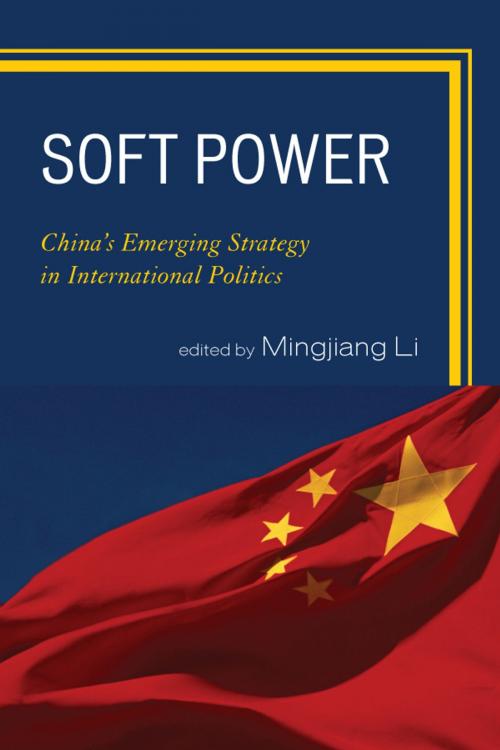Soft Power
China's Emerging Strategy in International Politics
Nonfiction, Social & Cultural Studies, Political Science, Government, Public Policy, International, International Relations| Author: | Gang Chen, Jianfeng Chen, Xiaohe Cheng Xiaogang Deng, Yong Deng, Joshua Kurlantzick, Zhongying Pang, Ignatius Wibowo, Lening Zhang, Yongjin Zhang, Zhiqun Zhu, Suisheng Zhao | ISBN: | 9780739133798 |
| Publisher: | Lexington Books | Publication: | August 15, 2009 |
| Imprint: | Lexington Books | Language: | English |
| Author: | Gang Chen, Jianfeng Chen, Xiaohe Cheng Xiaogang Deng, Yong Deng, Joshua Kurlantzick, Zhongying Pang, Ignatius Wibowo, Lening Zhang, Yongjin Zhang, Zhiqun Zhu, Suisheng Zhao |
| ISBN: | 9780739133798 |
| Publisher: | Lexington Books |
| Publication: | August 15, 2009 |
| Imprint: | Lexington Books |
| Language: | English |
Soft power has become a very popular concept in international affairs, appearing in government policy papers, academic discussions, and the popular media. In China, soft power has become one of the most frequently used phrases among political leaders, leading academics, and journalists. Defined against hard power, which often involves threat and coercion, soft power applies attraction, persuasion, and cooperation, finding its sources in culture, political values, and foreign policies. China, rich in culture and traditional philosophy, boasts abundant sources of soft power. Soft Power attempts to analyze the domestic and international views of China's soft power, the main strengths and weaknesses of China's soft power, and the application of soft power in China's international politics. It provides a comprehensive exploration of the soft power dimension in China's foreign relations by integrating views from various disciplines, such as history, education, culture, political economy, comparative politics, and philosophy. The book argues that soft power has become a very popular concept in China, that China is contemplating and exploring an innovative strategy in its rise and international politics, and that there have been quite a few notable elements of this in China's diplomatic practice, including softer rhetoric, promotion of the Chinese culture abroad, economic diplomacy, and image building. The book also argues that the limitations of China's soft power primarily stem from political values and China's own transitions, and reflects the reality that views and opinions regarding China's soft power are fairly diverse both in China and in the international arena.
Soft power has become a very popular concept in international affairs, appearing in government policy papers, academic discussions, and the popular media. In China, soft power has become one of the most frequently used phrases among political leaders, leading academics, and journalists. Defined against hard power, which often involves threat and coercion, soft power applies attraction, persuasion, and cooperation, finding its sources in culture, political values, and foreign policies. China, rich in culture and traditional philosophy, boasts abundant sources of soft power. Soft Power attempts to analyze the domestic and international views of China's soft power, the main strengths and weaknesses of China's soft power, and the application of soft power in China's international politics. It provides a comprehensive exploration of the soft power dimension in China's foreign relations by integrating views from various disciplines, such as history, education, culture, political economy, comparative politics, and philosophy. The book argues that soft power has become a very popular concept in China, that China is contemplating and exploring an innovative strategy in its rise and international politics, and that there have been quite a few notable elements of this in China's diplomatic practice, including softer rhetoric, promotion of the Chinese culture abroad, economic diplomacy, and image building. The book also argues that the limitations of China's soft power primarily stem from political values and China's own transitions, and reflects the reality that views and opinions regarding China's soft power are fairly diverse both in China and in the international arena.















